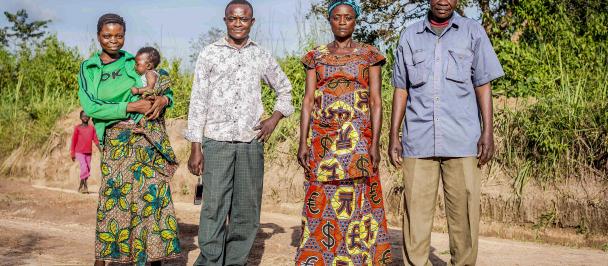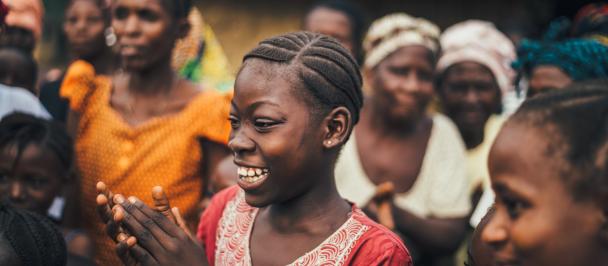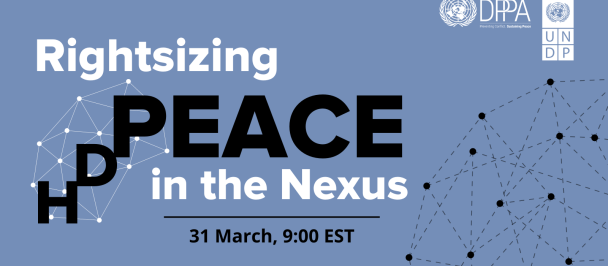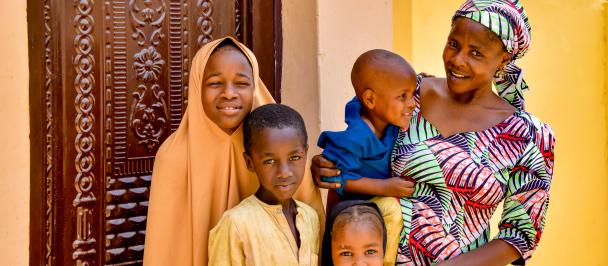The 20th anniversary of UN Security Council Resolution 1325 (UNSCR 1325) on women, peace and security marks an important milestone for the Decade of Action, to deliver the Sustainable Development Goals (SDGs) by 2030.
This year speakers at the Security Council Open Debate on Women, Peace and Security emphasized the need to ensure concerted efforts and far greater implementation of the women and peace and security agenda. The Open Debate also echoed the need to protect women human rights defenders, to marshal the international community to protect the shrinking civic space within which women are operating.
Today, 45 percent of UN Member States and observers have National Action Plans (NAPs) on UNSCR 1325. Of the 84 adopted by December 2019, only 28 include an allocated budget for implementation.
According to the UN Secretary-General’s report on women and peace and security, the number of women in peace processes still remains disappointingly low.
The UN-World Bank Pathways to Peace report notes that investment in prevention will pay off, every US$1 invested today saves US$16 down the road. Yet the global military expenditure has seen largest annual increase in a decade. Women peacebuilders and human rights defenders are often subjected to threats and assassination attempts with little recourse to justice, in addition to being left out of decision-making processes.
The year 2020 also marks the 25th anniversary of the Beijing Platform for Action. There is no doubt that some progress has been made in advancing the women, peace, and security agenda, but more needs to be done.
The COVID-19 pandemic has had devastating effects on women and girls. Yet UNDP and UN Women’s newly launched COVID-19 Global Gender Response Tracker shows the social protection and jobs response to the pandemic has largely overlooked women’s needs. Governments are failing to address inequalities within education systems, providing protection to the victims of domestic violence and necessary health care; which are disproportionately impacting women and girls. We must act now to halt the reversal in our hard-won gains.
UNDP is working with the International Civil Society Action Network (ICAN), the Women's International League for Peace and Freedom (WILPF) and UN Women to address challenges on the ground in conflict and post-conflict areas. We have increasing evidence that women leaders at the local level are able to quickly build key “social infrastructure” in crisis settings.
In Lebanon UNDP is working with local women leaders to respond to increased cases of gender-based violence since the onset of COVID-19 through social media campaigns.
UNDP’s global programme on Rule of Law, Justice, Security and Human Rights assistance spans seven key areas: Political Engagement, Institution Building, Community Security, Human Rights, Access to Justice, Transitional Justice, and Gender Justice. The lack of access to justice is a critical area of concern for victims of conflict-related sexual violence (CRSV). UNDP’s work in Darfur, for example, seeks to strengthen governments’ capacities for investigating and prosecuting serious crimes, including CRSV and Sexual and Gender Based Violence (SGBV) and focuses on building security and justice infrastructure for marginalized and vulnerable communities.
In the Bangsamoro Autonomous Region in Muslim Mindanao located in the southern Philippines, UNDP has been providing technical and operational assistance in the implementation of reformation, reintegration and transformation initiatives . This ‘deradicalization’ programme, covers more than 1,000 returnees who are former members of violent extremist groups. UNDP is also assisting, through the ‘Women’s Rapid Action and Mobilization Platform’, female mediators and grassroots activists, to pioneer peace education and conflict mediation, develop alternative narratives, tackle misinformation, hate, discrimination and the corruption of faith-based learning.
In Kyrgyzstan and Sierra Leone UNDP has joined forces with women parliamentarians and community leaders to advance vital action plans on women, peace and security.
According to a 2019 independent assessment commissioned by UN Women, only 50 percent of the gender-related recommendations from the UN’s peace and security reviews were in place and 10 percent had either gone backwards or were not progressing at all. The UN Secretary-General has called for profound changes in the way we conduct our work on international peace and security, joining forces behind five goals for the next decade; women’s equal and meaningful participation; women’s human rights at the forefront; investment in social infrastructure and services; a gender data revolution; and universal compliance with a minimum of 15 percent of official development assistance to conflict-affected countries dedicated to advancing gender equality.
UNDP remains committed to tackling its multi-dimensional challenges to move the women, peace and security agenda forward, even amidst and especially because of the COVID-19 crisis. In today’s world, it is clear that we must continue to work with our partners to help countries across the globe to put women and girls--their inclusion, representation, rights, and protection--at the centre of all efforts to build forward better, with the SDGs as our compass.

 Locations
Locations




